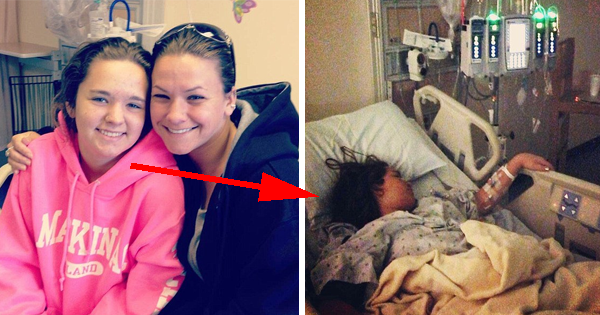A couple days ago, 16-year-old Katrina Shelton felt a little under the weather when she got up to get ready for school. She remembered that she was “struggling to keep [her] eyes open,” and even felt bad enough that she asked her mom to take her home from school later that day.
Back at home, Shelton slept the rest of the day, and felt well enough to return to her studies the following day. It was only a few hours later, however, that she felt “overwhelmed” by exhaustion and began to vomit uncontrollably.
At that point, both she and her mother suspected she’d contracted a particularly nasty strain of the flu and thought it would be best to take her to see a doctor.
But on the way to the car, Shelton collapsed on the ground.
“I woke up and I couldn't move the right side of my body. I couldn't lift my leg or my arm and I started freaking out. I don't remember how I got there, but my mum had to carry me to the car, because I couldn't walk,” Shelton later explained.
Shelton was taken to the hospital where doctors and nurses ran a myriad of tests on her. Her vital signs were weak and her blood pressure had plummeted, the doctors were worried she wouldn’t actually make it through the night.
“On that first day, doctors were preparing my family for the worst,” Shelton recalled.
After being kept in intensive care for the next two days, Shelton, thankfully, began to recover.
Her doctors diagnosed her with toxic shock syndrome, a bacterial infection that is most commonly associated with women who use their tampons for too long.
Shelton, however, insisted that she’d never used her tampons beyond the suggested amount of time, as labelled on the side of her tampon boxes – but her doctors were dubious.
Before Shelton was sent home, she was instructed by her doctors to not use tampons for a while.
Now, looking back on the incident, Shelton realizes how foolish she was, “You see the warning labels on boxes of tampons, but you never think it's going to happen to you. You think it's just some scary thing that they put on there just in case.
“I…warn people to read the package and take it seriously. I think if I had done that, it might not have happened.”





